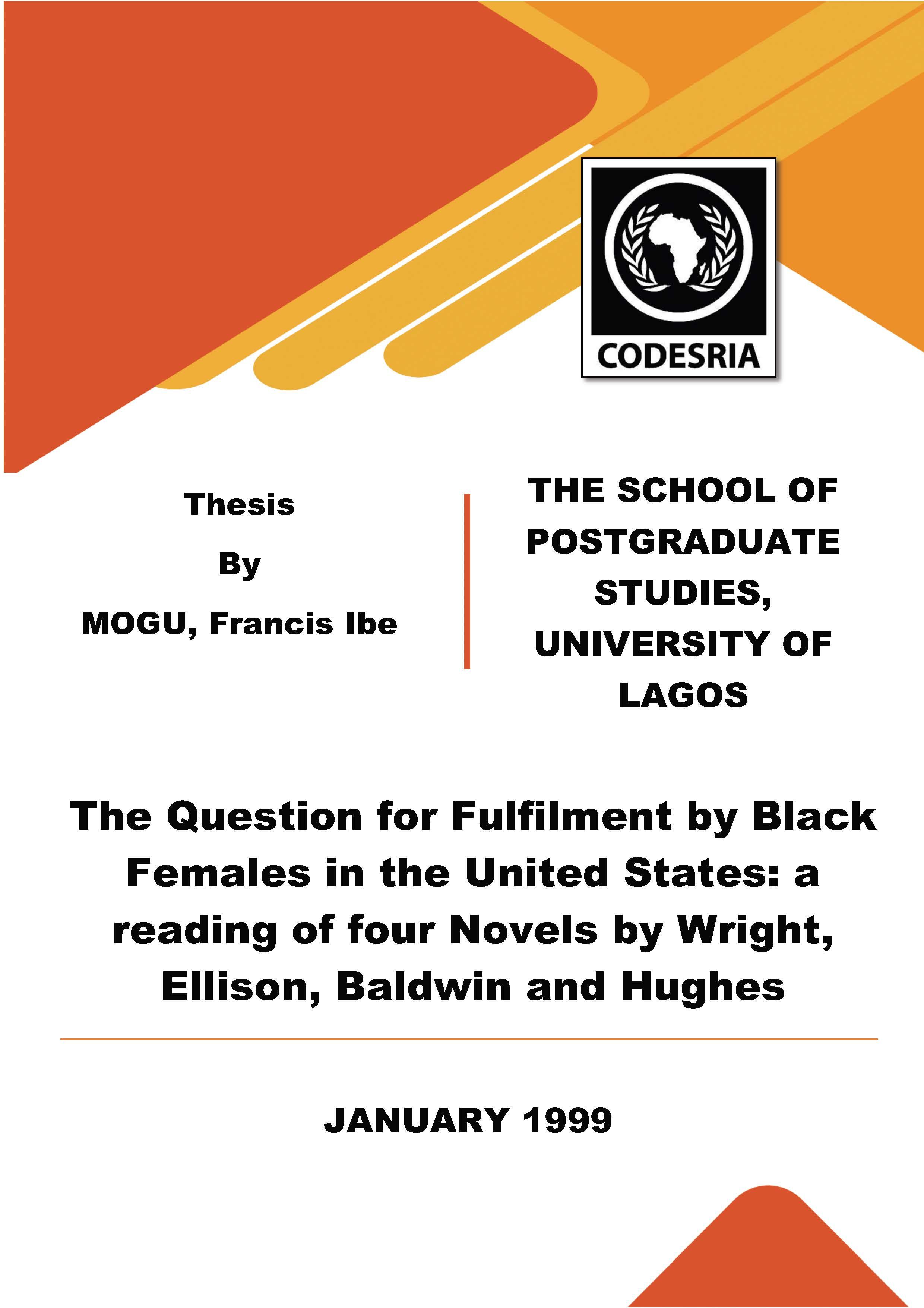The Question for Fulfilment by Black Females in the United States: a reading of four Novels by Wright, Ellison, Baldwin and Hughes
Mots-clés :
Fulfilment, Black Females, United States, Ellison, Baldwin, HughesSynopsis
This study crilirnlly explores the persistent claim by feminists that black male writing in the United States "has been systematically discriminatory against women." The critics insist that African-American women in the male authored works are portrayed as playing unimportant roles that make the male protagonists emerge as the 'real black heroes.' No black female, they argue, is accorded heroic status in texts by these male writers. They are also dissatisfied with the fact that some male authored works completely exclude black women and their experiences.
This study addresses most of the issues raised by the critics by revealing how the quest for fulfilment by black females in the United States is central to the feminist efforts of black. women in the male authored texts. Aspects of the female quest for the realisation of their aspirations include the pursuit of advanced education, economic and political empowerment, social equality and cultural expression.
The study highlights the heroic contributions of Individual black women to the advancement of the African-American community in the United States in works by Richard Wright, Ralph Ellison, James Baldwin and Langston Hughes. Novels by two renowned black women writers, Toni Morrison and Alice Walker, are regularly referred to in order to provide portrayals of African-American women by black women writers.
The study concentrates on the daily preoccupations of black females as they struggle to create the basis for improving the lot of their offspring and contribute to the uplift of their people and communities. These female characters are shown as deriving great satisfaction from the challenges posed by the oppressive circumstances in which they find themselves. Their persistent
self-application is evident in the works and underscores the fact that the writers realistically capture a particular phase in the black females' march towards selfrealization. The black women in these works are therefore regarded as pioneers who are conscious of their roles and perform these roles with great foffitucle, hope and sense of fulfilment.
Téléchargements
Références
Hammond, Dorothy Branson, and Alta Jablow. The africa That Never Was : Four Centuries of British Writing About lifrica. New York: Twayne Publishers, 1970.
Franklin, Clyde, II. "Black male - Black Female Conflict: Individually Caused and Culturally Nurtured." The Black Fami{y: Essqys and Studies, ed., Robert Staples. Belmont, California: Wadsworth Press, 1986: 106 - 113.
Combahee River Collective. "A Black Feminist Statement." In Capitalist Partriarchy and the Case for Sodalist Feminism, ed., Zillah R. Eisenstein. New York: Monthly Review Press, 1979. 259-291. Also in Home girls: A Black Feminist Anthology, ed., Barbara Smith. New York: Kitchen Table Press, 1983: 272-282.
Cixous, Helene. 1976: The Laugh of the Medusa, trans. Keith Cohen and Paula Cohen. Signs: Journal of Women i11 Culture and Society 1(4) (summer): 875-893. Reprinted in Feminisms: A11 Anthology of Literary Theory and Critidsm, ed., Robyn R. Warhol and Diane Price Herndl, 334-349. New Brunswick, N.J.: Rutgers University Press, 199 L






